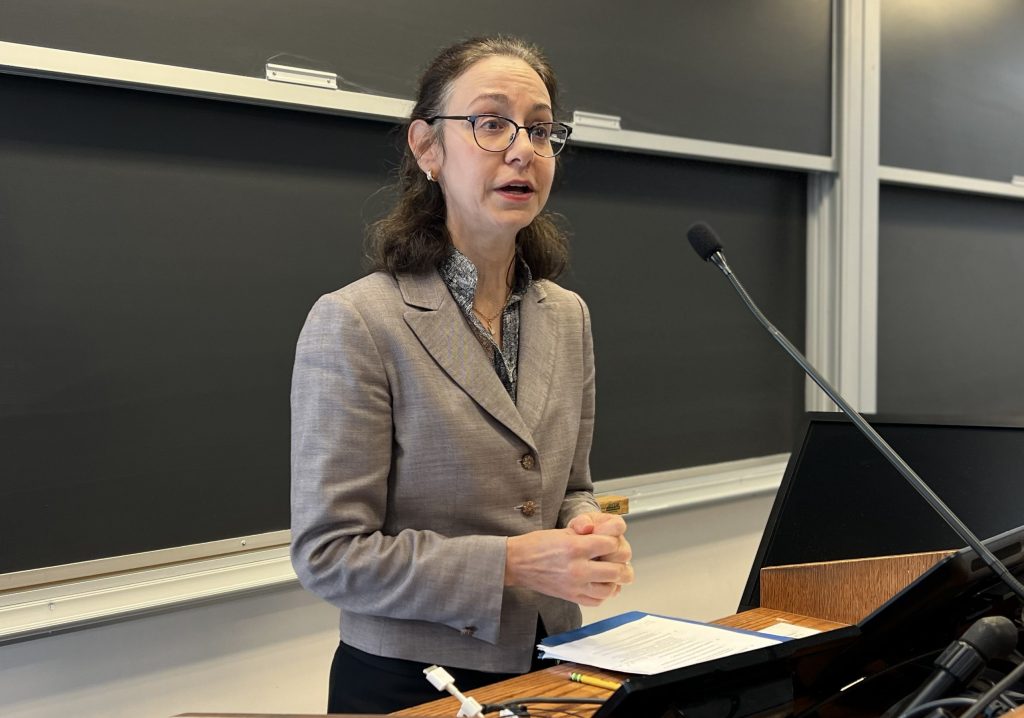With new developments in the news everyday about Russian President Vladimir Putin’s encroachment into Ukraine, the law of war is top of mind for law students and legal scholars across the world.
The Owen M. Kupfershmid Holocaust/Human Rights Project (HHRP) at Boston College Law School hosted Professor Mary Beth Basile Chopas on October 19 to discuss how the law of war has evolved from the Greco-Roman days to the present. Chopas is a legal scholar and will be teaching a class on the Law of War in the spring semester of 2023. She is also a 1993 graduate of Boston College Law School.
Chopas touched on the idea of government restraints in wartime, including codes of ethics established in Greco-Roman times. Roman Statesman Cicero famously believed in showing mercy to the conquered. Sacred places and monuments were immunized and civilian casualties minimized.
International criminal laws today are another order of magnitude. Since the Nuremberg trials, we have definitions for crimes against humanity and genocide. The trials also served as an example for international cooperation on how to prosecute war crimes. However, given the meticulous documentation of the Nazis during World War II, prosecutors had ample evidence to move forward with their cases. In most war crimes cases, the lack of documentary evidence can become a real barrier to justice.
As was done in the Nuremberg trials, there is a drive to prosecute the entire chain of command when it comes to war crimes, Chopas explained. But for each charged person, there must be inculpatory evidence tying them to the crime on the ground. In other words, you must be able to tie commands to actions and actions to crimes.
“You might have photos of low-level soldiers committing a crime or some footage,” Chopas said. “But how do you trace these crimes to the highest leaders? The chain of command is a tough issue in these cases. Are these orders being handed down from the top? How are they implemented?”
Nevertheless, the international community has already started taking action against Putin’s actions in the Ukraine. Organizations have started investigations using the body of rules and courts created after World War II and the Nuremberg trials. Some helpful evidence already collected includes refugee accounts, satellite imagery, and evidence of Russia’s aggressive intentions.
Chopas stressed the importance of paying close attention to history and where the law may be taking us. “When we talk about these topics, it’s important to keep in mind where we are, and see there is a lot of repetition. History can inform our proper response,” she said.


